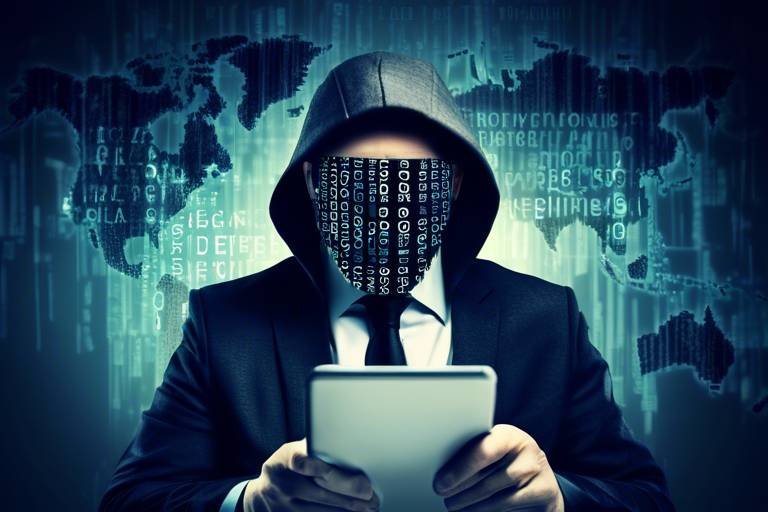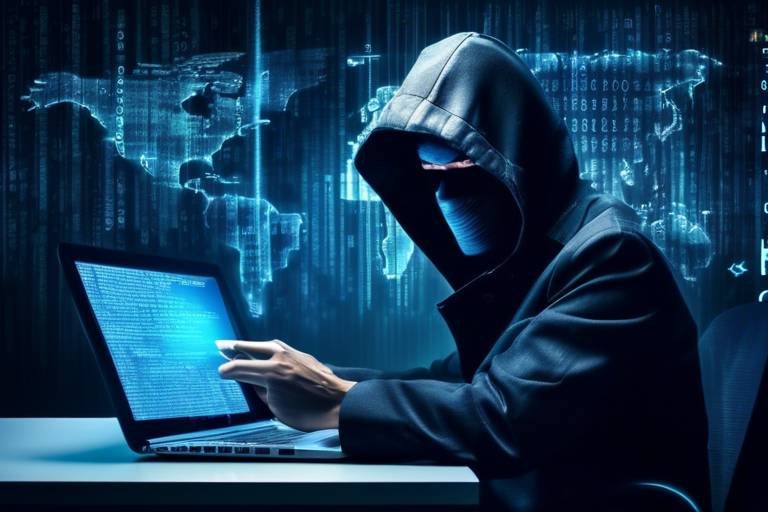Cybersecurity and Online Gaming - How to Stay Safe
In today's digital age, online gaming has become a thrilling escape for millions around the globe. However, with great fun comes great responsibility, especially when it comes to cybersecurity. Just like a knight dons armor before heading into battle, gamers need to equip themselves with the right tools and knowledge to fend off potential threats. This article delves into the importance of cybersecurity in online gaming and provides essential tips and strategies to ensure a safe gaming experience for players of all levels.
The world of online gaming is not just filled with epic quests and thrilling adventures; it also harbors a myriad of cyber threats that can jeopardize your gaming experience. From phishing scams to malware and account hacking, the dangers are real and ever-present. Imagine logging into your favorite game, only to find your account compromised and your hard-earned loot vanished! That's why being aware of these threats is crucial. Gamers should familiarize themselves with the common types of cyber threats:
- Phishing: Deceptive emails or messages designed to trick you into revealing personal information.
- Malware: Malicious software that can infect your device, stealing data or causing damage.
- Account Hacking: Unauthorized access to your gaming account, often leading to loss of items or personal information.
By understanding these threats, players can take proactive measures to protect themselves and their accounts.
One of the most effective ways to defend against cyber threats is through strong passwords. Think of your password as the key to your treasure chest; if it's weak, anyone can waltz in and steal your loot! To safeguard your gaming accounts, consider the following strategies for creating and managing secure passwords:
- Use a mix of uppercase and lowercase letters, numbers, and special characters.
- Avoid using easily guessable information like birthdays or names.
- Change your passwords regularly and avoid reusing them across different platforms.
Implementing two-factor authentication (2FA) adds an extra layer of security to your gaming accounts. It’s like having a second lock on your treasure chest! Even if someone manages to obtain your password, they would still need access to your second factor, which is usually a code sent to your phone or email. Enabling 2FA is a straightforward process on most platforms, and it significantly enhances your account's security.
Selecting the right authentication app can make a world of difference. Popular options like Google Authenticator, Authy, and Microsoft Authenticator offer robust features to help you secure your accounts. When choosing an app, consider factors such as ease of use, backup options, and compatibility with your gaming platforms. This way, you can ensure that your gaming experience remains uninterrupted and secure.
Understanding backup codes and recovery options is vital for account security. These features act as your safety net, allowing you to regain access to your account if you lose your primary authentication method. Most platforms provide backup codes during the 2FA setup process, so be sure to store them in a safe place. Familiarize yourself with the recovery options available for your gaming account, as this knowledge can save you from a potential disaster.
Phishing scams are prevalent in online gaming, often disguised as legitimate communications from game developers or support teams. To protect yourself, it's essential to know how to identify these malicious attempts. Look out for:
- Unusual email addresses or URLs that don't match official domains.
- Urgent messages requesting personal information or account verification.
- Links that lead to unfamiliar websites asking for your login credentials.
Always double-check the source before clicking on any links or providing information to avoid falling victim to these scams.
In addition to securing your accounts, adopting safe online practices is crucial. Avoid using public Wi-Fi networks when gaming, as they can expose your data to hackers. Be cautious with in-game purchases; always verify the legitimacy of the transaction. Furthermore, ensure that the websites you visit are secure by checking for HTTPS in the URL. These small steps can significantly enhance your online safety.
Consider using a Virtual Private Network (VPN) for an extra layer of protection during online gaming. A VPN encrypts your internet connection, making it much harder for anyone to intercept your data. When choosing a VPN, look for one that offers fast speeds and a no-logs policy, ensuring your gaming experience remains smooth and private.
Regularly reviewing your game settings and permissions is essential for maintaining privacy. Many games allow you to customize what information is shared with others. Take the time to understand these settings and adjust them according to your comfort level. Knowledge is power, and being in control of your information can help you enjoy gaming without unnecessary worries.
Q: What should I do if I suspect my account has been hacked?
A: Immediately change your password and enable two-factor authentication. Contact the game's support team for further assistance.
Q: Are free VPNs safe to use for gaming?
A: While some free VPNs can be safe, many have limitations and may compromise your data. It's advisable to invest in a reputable paid VPN for better security.
Q: How can I tell if a website is secure?
A: Look for URLs that start with HTTPS and check for a padlock icon in the address bar, indicating a secure connection.

Understanding Cyber Threats in Gaming
This article explores the importance of cybersecurity in online gaming and provides essential tips and strategies to ensure a safe gaming experience for players of all levels.
In the vast and exhilarating world of online gaming, players often immerse themselves in thrilling adventures, engaging with friends, and competing for glory. However, lurking behind the excitement are various cyber threats that can turn a fun experience into a nightmare. These threats include phishing, malware, and account hacking, each posing unique challenges that every gamer should be aware of.
To begin with, phishing is a prevalent tactic used by cybercriminals to deceive players into revealing their personal information. Imagine receiving a seemingly innocent message from a fellow gamer, asking you to click on a link for a special in-game item. Once you click, you might unknowingly hand over your login credentials to hackers. This is why being vigilant about the links you click and the information you share is crucial.
Next, we have malware, which can infect your device through downloads or malicious websites. Think of malware as a hidden virus that sneaks into your gaming system, compromising your data and potentially stealing your account information. It can lead to devastating consequences, such as losing progress in your favorite games or, worse, losing access to your entire gaming account.
Finally, there’s the risk of account hacking. This can happen if your password is weak or if you've fallen victim to a phishing scam. Once hackers gain access to your account, they can wreak havoc by stealing your in-game assets, changing your password, or even using your account for illicit activities. The emotional toll of having your hard-earned achievements stripped away is something no gamer should have to experience.
In light of these threats, it’s essential to adopt a proactive approach to your gaming security. Awareness is the first line of defense. By understanding the types of threats out there, you can better protect yourself and your gaming experience. Here are a few strategies that can help:
- Stay Informed: Keep up with the latest cybersecurity news related to gaming.
- Use Strong Passwords: Create complex passwords that are hard to guess.
- Be Skeptical: Always question the legitimacy of messages and links from unknown sources.
In conclusion, the online gaming landscape is filled with both excitement and risks. By familiarizing yourself with the types of cyber threats and implementing security measures, you can enjoy a safer gaming experience. Remember, a little caution goes a long way in protecting your gaming identity and assets.
Strong passwords are crucial for protecting gaming accounts. This section outlines effective strategies for creating and managing secure passwords to safeguard personal information.
Implementing two-factor authentication adds an extra layer of security to gaming accounts. This subheading discusses its importance and how to enable it on various platforms.
Selecting the right authentication app can enhance security. This section reviews popular options and their features to help gamers choose the best fit for their needs.
Understanding backup codes and recovery options is vital for account security. This part explains how to utilize these features effectively to regain access if needed.
Phishing scams are prevalent in online gaming. This subheading provides tips on how to identify and avoid these malicious attempts to steal personal information.
This section covers essential safe online practices, including avoiding public Wi-Fi, being cautious with in-game purchases, and recognizing secure websites.
Virtual Private Networks (VPNs) can provide additional security during online gaming. This subheading discusses the benefits of using a VPN and how to choose the right one.
Regularly reviewing game settings and permissions helps maintain privacy. This part emphasizes the importance of understanding what information is shared with others while gaming.
Q: What should I do if I suspect my account has been hacked?
A: Immediately change your password and enable two-factor authentication. Contact the game's support team for assistance.
Q: How can I tell if a website is secure for gaming purchases?
A: Look for "https://" in the URL and check for trust seals or reviews from other users.
Q: Are free VPNs safe to use while gaming?
A: Many free VPNs can compromise your security. It's better to invest in a reputable paid VPN service.
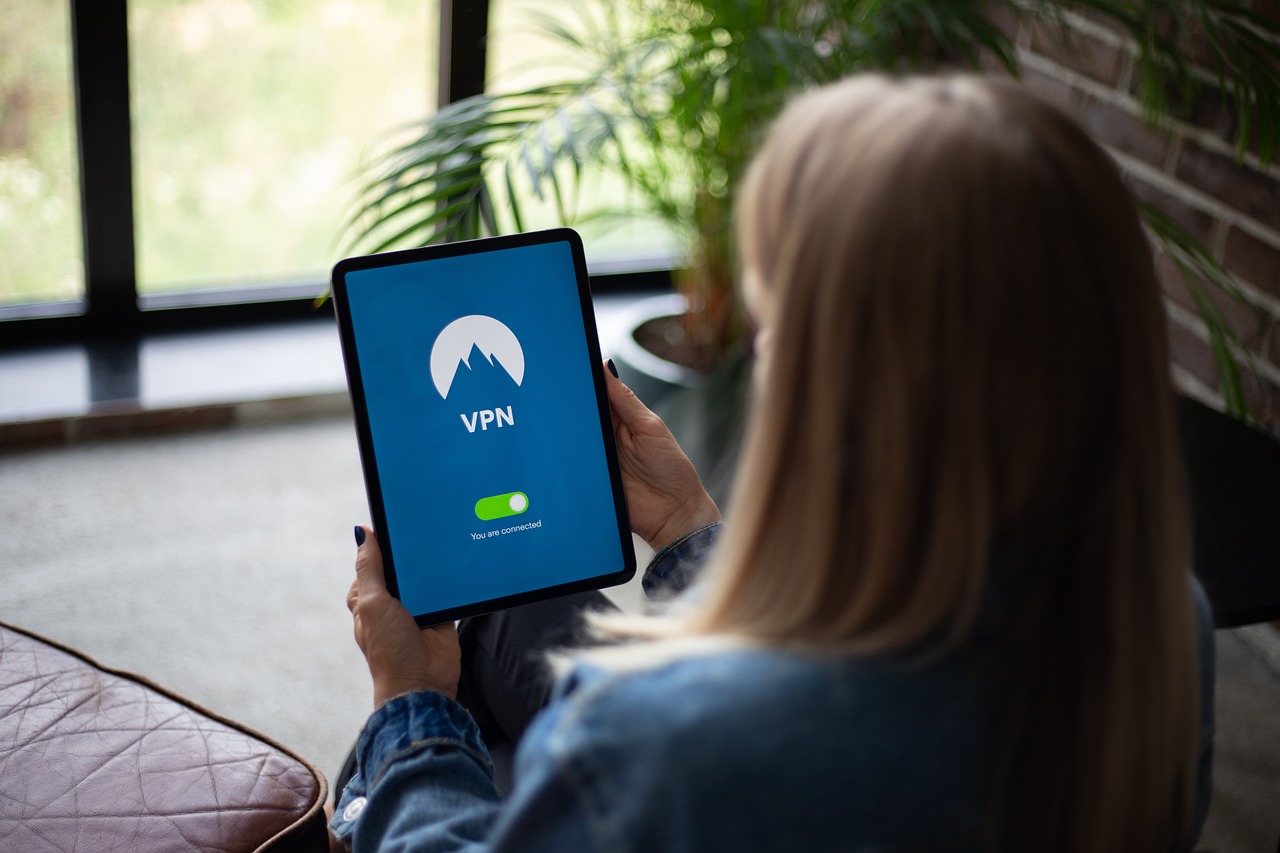
Best Practices for Password Security
When it comes to online gaming, password security is your first line of defense. Think of your password as the key to your gaming castle; if it’s weak, you’re inviting trouble right through the front door! So, how do you craft a password that not only keeps your account safe but also stands the test of time? Here are some essential strategies to consider.
First off, **length matters**. A password should ideally be at least 12 to 16 characters long. The longer your password, the harder it is for cybercriminals to crack it. Combine upper and lower-case letters, numbers, and special characters to create a complex mix. For example, instead of using “password123,” you might try “P@ssw0rd!2023” — it’s much tougher for anyone to guess!
Next, you should consider using a password manager. These handy tools can generate and store complex passwords for you, so you don’t have to remember every single one. Imagine having a vault that keeps all your keys organized and secure! With a password manager, you can create unique passwords for each of your gaming accounts without the hassle of memorizing them.
| Password Manager | Features |
|---|---|
| LastPass | Free version available, password generation, autofill |
| 1Password | User-friendly interface, travel mode, secure sharing |
| Dashlane | Dark web monitoring, VPN included, password health reports |
Another tip is to avoid using the same password across multiple platforms. It’s tempting to reuse passwords for convenience, but if one site gets compromised, all your accounts become vulnerable. Think of it like wearing the same outfit to every event; if it gets stained, you’re in trouble at every occasion!
Lastly, regularly update your passwords. Just like you wouldn’t wear the same shoes every day for years, your passwords need a refresh too! Set a reminder to change your passwords every three to six months. This practice helps ensure that even if your password was compromised without your knowledge, you’re minimizing the risk of long-term damage.
In summary, by employing a mix of complex passwords, utilizing password managers, avoiding repetition, and keeping your passwords fresh, you can significantly enhance your online gaming security. Remember, a strong password is not just a barrier; it’s your shield against potential cyber threats!

Two-Factor Authentication
In the ever-evolving world of online gaming, where threats lurk behind every click, two-factor authentication (2FA) has emerged as a formidable ally in safeguarding your gaming accounts. Imagine your gaming account as a treasure chest filled with your hard-earned loot—would you leave it unguarded? Absolutely not! That's where 2FA comes into play. By requiring not just a password but also a second form of verification, it adds a crucial layer of protection against unauthorized access.
So, how does it work? Typically, after entering your password, you'll receive a verification code via text message, email, or an authentication app. This means that even if a cybercriminal manages to steal your password, they won't be able to access your account without that second piece of information. It's like having a bouncer at the door of your gaming paradise, checking IDs before letting anyone in!
Enabling two-factor authentication is a straightforward process on most gaming platforms. Here’s a quick overview of how you can get started:
- Access Account Settings: Navigate to your account settings on the gaming platform.
- Find Security Options: Look for the security or privacy section.
- Enable 2FA: Follow the prompts to activate two-factor authentication.
- Choose Verification Method: Select how you want to receive your verification codes.
While the process may vary slightly from one platform to another, the core idea remains the same: enhance your security. It's worth noting that some platforms even offer the option to use an authentication app, which can provide a more seamless experience than relying on text messages. These apps generate time-sensitive codes, ensuring that your verification process is secure and efficient.
But what if you lose access to your phone or change numbers? Fear not! Most platforms provide you with backup codes during the setup process. These codes act as a safety net, allowing you to regain access to your account without the need for the second factor. Just remember to store these codes in a safe place—like a digital vault or a password manager—so they’re easily accessible when you need them.
In conclusion, implementing two-factor authentication is a simple yet effective way to bolster your gaming account's security. It may seem like an extra step, but in the world of online gaming, taking that extra step can mean the difference between keeping your treasures safe and losing them to cyber thieves. So, don’t wait—enable 2FA today and enjoy your gaming adventures with peace of mind!
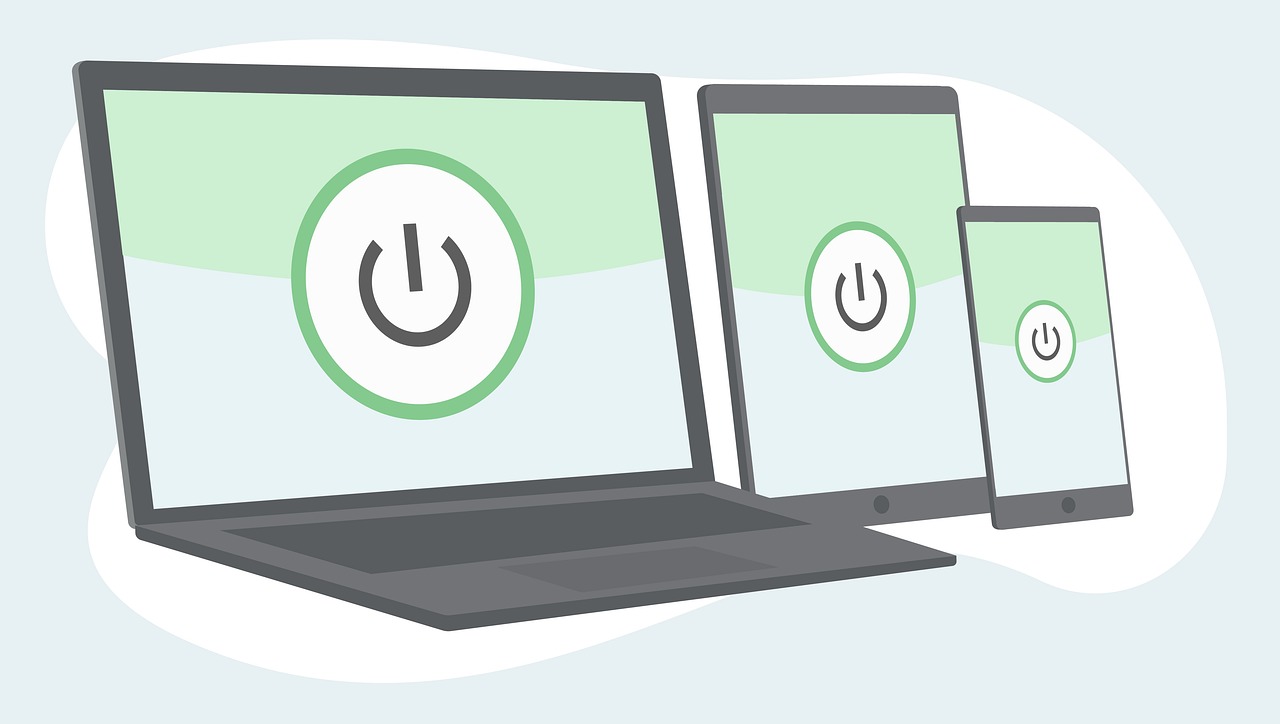
Choosing Authentication Apps
When it comes to securing your online gaming accounts, one of the most effective tools at your disposal is an authentication app. These apps provide a second layer of security beyond just your password, making it significantly harder for hackers to gain access to your account. But with so many options available, how do you choose the right one for your needs? Let's break it down.
First off, consider the compatibility of the authentication app with your gaming platforms. Most popular apps, like Google Authenticator, Authy, and Microsoft Authenticator, support a wide range of services, including major gaming networks. It's essential to ensure that the app you choose works seamlessly with the games you play. For example, if you're a dedicated player on Steam or PlayStation Network, check if the app integrates easily with those services.
Another important factor is the user interface. You want an app that is not only functional but also easy to navigate. A cluttered or confusing interface can lead to mistakes when entering your authentication codes, which could lock you out of your account. Look for apps that offer a clean, intuitive design, and perhaps even a few customization options to make it feel more personal.
Security features are also a vital consideration. Some apps provide additional functionalities, such as cloud backup of your codes, which can be a lifesaver if you ever lose your device. Others might offer biometric security options, like fingerprint or facial recognition, adding an extra layer of protection. When choosing an authentication app, weigh these features against your personal security needs and preferences.
Lastly, think about the reputation of the app. Research user reviews and expert recommendations to gauge how reliable and trustworthy an app is. You want to avoid apps that have had security breaches or negative feedback regarding their performance. A quick online search can reveal a lot about an app's reputation, helping you make an informed choice.
In summary, when selecting an authentication app for your gaming accounts, keep in mind the following criteria:
- Compatibility: Ensure it works with your gaming platforms.
- User Interface: Look for a clean and easy-to-use design.
- Security Features: Consider cloud backup and biometric options.
- Reputation: Research user feedback and expert reviews.
By taking the time to choose the right authentication app, you can significantly enhance your online gaming security and enjoy a safer gaming experience. Remember, in the world of online gaming, a few extra steps in security can save you from potential headaches down the line!
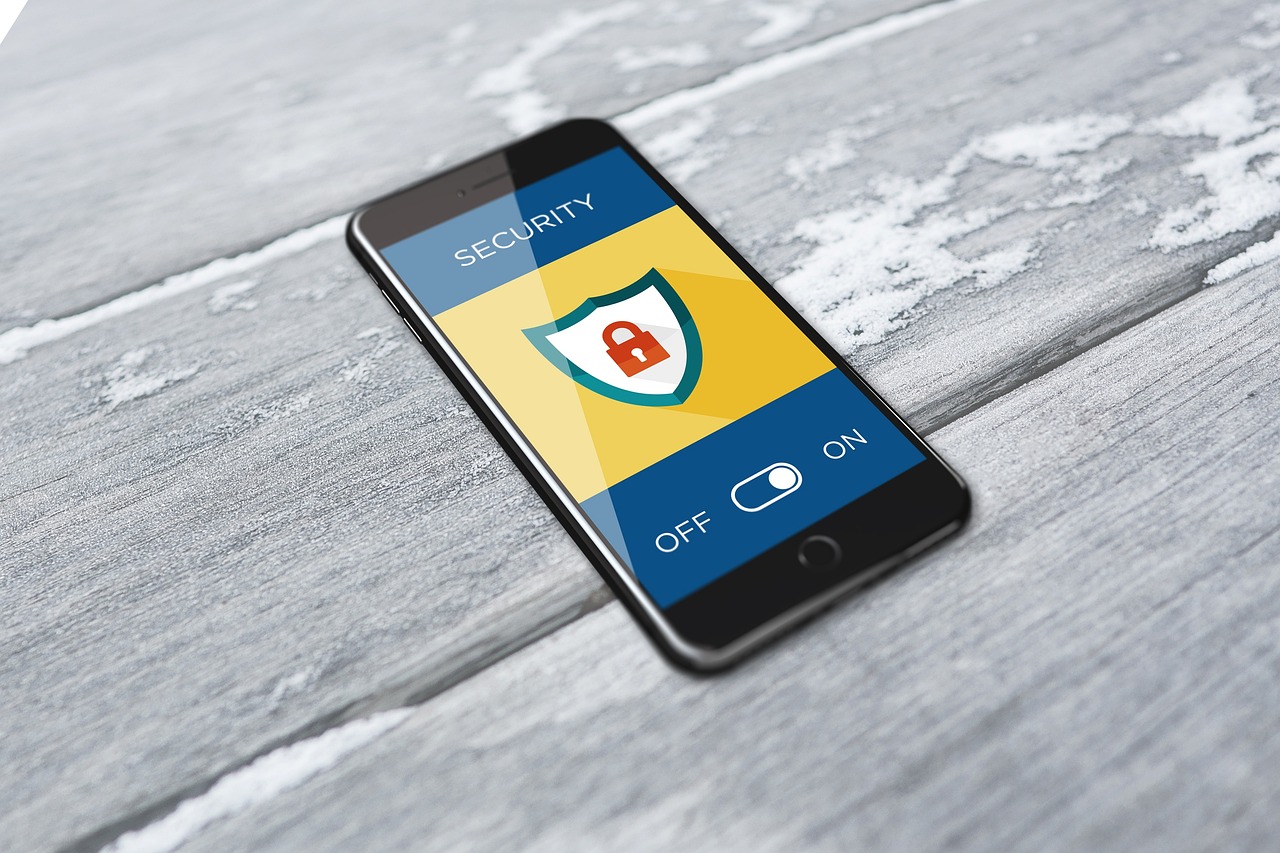
Backup Codes and Recovery Options
When it comes to securing your gaming accounts, backup codes and recovery options are your safety net. Imagine this: you’ve just scored a massive win in your favorite game, and suddenly, you can’t log in. Panic sets in, but if you’ve prepared ahead of time, you can quickly regain access. Backup codes act as a secret key, allowing you to log in even if you’ve lost access to your primary authentication method, like your phone or email.
Most gaming platforms offer the option to generate these backup codes when you set up two-factor authentication. It’s crucial to store these codes in a safe place—think of them as your emergency cash stash. You wouldn’t leave your wallet lying around, would you? Instead, keep them in a secure password manager or a locked drawer. This way, if you find yourself locked out, you can retrieve those codes and get back to gaming without a hitch.
Now, let’s talk about recovery options. These are your lifeline if you forget your password or lose access to your account. Most platforms provide several methods for account recovery, such as:
- Email Recovery: This is the most common method. You’ll receive a link to reset your password via email.
- Security Questions: Some platforms ask you to answer pre-set questions to verify your identity.
- SMS Verification: If you’ve linked your phone number, you might receive a text message with a verification code.
It’s essential to keep your recovery options updated. If you change your email or phone number, make sure to update your gaming accounts accordingly. Failure to do so could lead to a frustrating experience when you need to recover your account.
In conclusion, taking the time to set up and understand can save you from a world of frustration. By being proactive, you can ensure that your gaming experience remains uninterrupted and secure. Remember, in the world of online gaming, it’s better to be safe than sorry!
Q: What are backup codes?
A: Backup codes are unique codes generated by a gaming platform that allow you to access your account if you lose access to your primary authentication method.
Q: How do I generate backup codes?
A: You can typically generate backup codes in the security settings of your gaming account when you enable two-factor authentication.
Q: What should I do if I lose my backup codes?
A: If you lose your backup codes, you may need to use your account recovery options to regain access to your account. Always ensure your recovery options are up to date.
Q: Are backup codes the same as my password?
A: No, backup codes are separate from your password and are used specifically for account recovery when you cannot access your regular authentication methods.
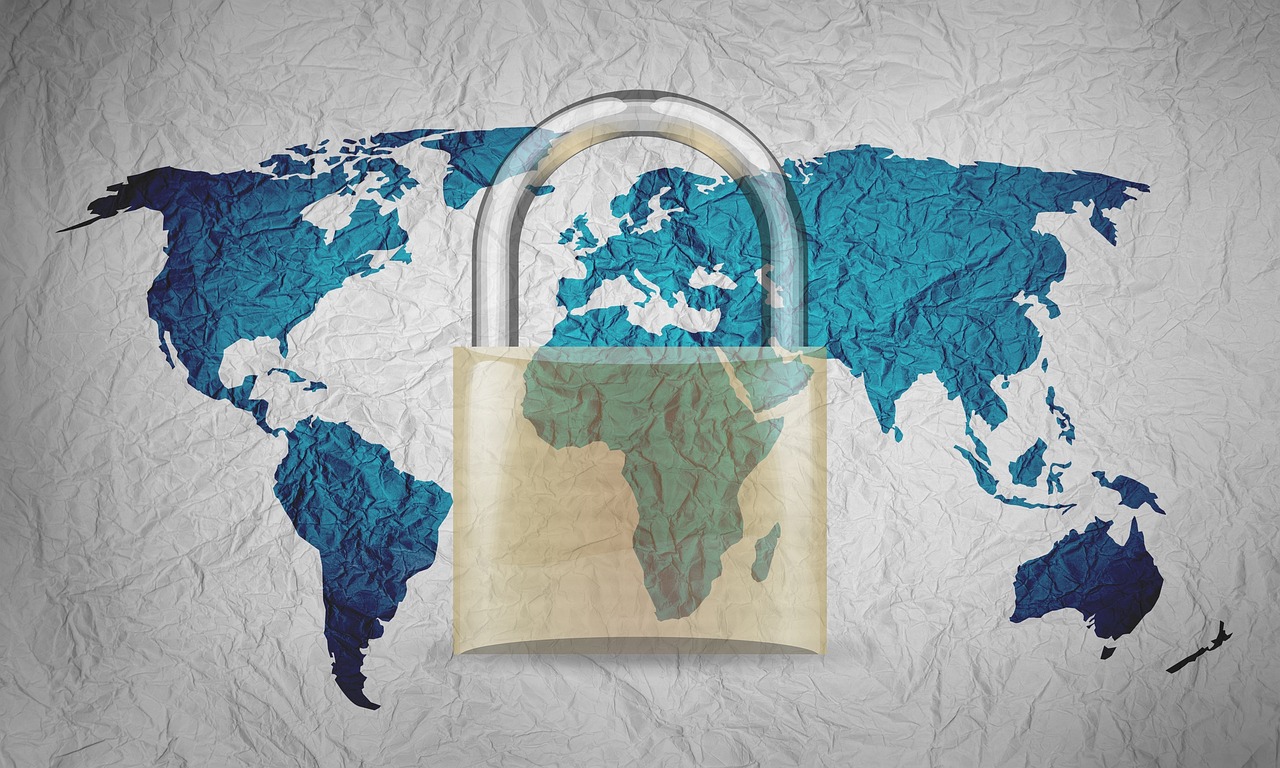
Recognizing Phishing Attempts
In the vast universe of online gaming, where excitement and competition reign, there lurks a sinister threat: phishing attempts. These scams are designed to trick you into revealing personal information, such as your login credentials or financial details. Imagine you're deep into an epic quest, and suddenly, a message pops up claiming to be from your favorite gaming platform, offering a free upgrade or exclusive in-game currency. Sounds tempting, right? But hold on! This could be a phishing attempt.
Phishing attempts can take many forms, and recognizing them is crucial for your safety. Here are some common signs to watch for:
- Suspicious Links: If a link looks odd or doesn't match the official website, it's a red flag. Always hover over links to see the actual URL before clicking.
- Urgent Language: Phishing messages often create a sense of urgency, pushing you to act quickly. Phrases like "Immediate action required!" should raise your suspicions.
- Generic Greetings: If the message starts with a vague greeting like "Dear Player" instead of your username, it's likely not from a legitimate source.
- Unusual Sender Email: Check the sender's email address. Phishers often use addresses that mimic official ones but contain slight misspellings or extra characters.
It's not just about recognizing the scams, but also about knowing how to respond if you encounter one. If you suspect a message is phishing, the best course of action is to:
- Do Not Click: Resist the urge to click any links or download attachments.
- Report the Attempt: Inform the gaming platform about the suspicious message. They can take action to protect other players.
- Change Your Password: If you accidentally clicked a link, change your password immediately to secure your account.
Staying vigilant is key in the gaming world. Just like you wouldn't leave your front door wide open while you're away, you shouldn't let your guard down online. Always question the legitimacy of unexpected messages, and remember: if something seems too good to be true, it probably is!
By being aware of these phishing tactics and knowing how to respond, you can enjoy your gaming experience without falling victim to these malicious schemes. Keep your wits about you, and let the only thing you battle be the monsters in your game!
Q: What should I do if I think I've fallen for a phishing scam?
A: If you believe you’ve been scammed, immediately change your passwords and enable two-factor authentication on your accounts. Contact the service provider for further assistance.
Q: Are there any tools to help identify phishing attempts?
A: Yes! There are several browser extensions and security software that can help detect phishing sites and warn you before you enter personal information.
Q: Can phishing attempts happen on gaming consoles?
A: Absolutely! Phishing can occur on any platform, including gaming consoles. Always be cautious of messages or emails that ask for personal information.
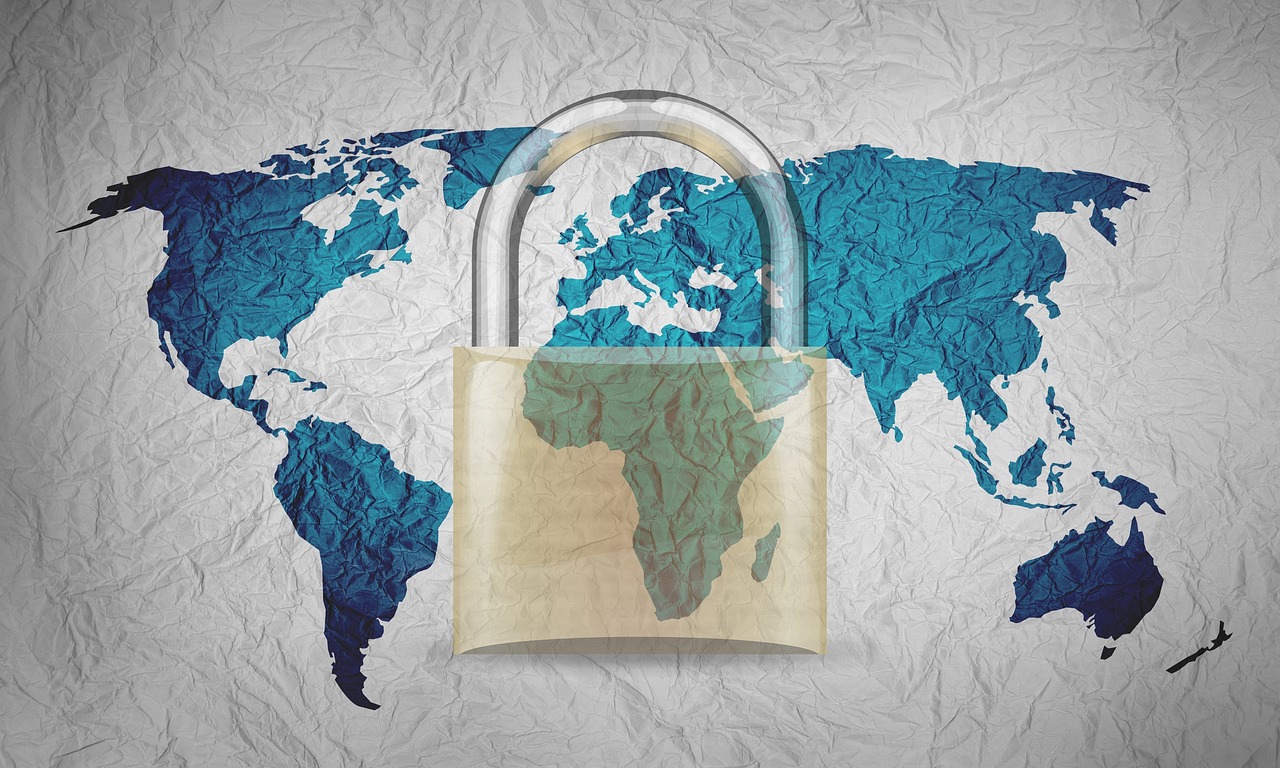
Safe Online Practices While Gaming
When diving into the thrilling world of online gaming, it's easy to get swept away by the excitement. However, amidst the adrenaline rush, it's crucial to remember that safety should always be a top priority. Just like you wouldn't leave your front door wide open while hosting a party, you shouldn't leave your gaming accounts vulnerable to cyber threats. So, how can you ensure a safe gaming experience? Here are some essential practices to keep in mind.
First and foremost, one of the most effective ways to protect yourself while gaming is to avoid using public Wi-Fi. Sure, it might be tempting to log in from your favorite café or library, but public networks are often breeding grounds for hackers. Think of it as playing hide and seek in a crowded park; the more people around, the easier it is for someone to sneak up on you. Instead, try to stick to secure, private networks whenever possible. If you must use public Wi-Fi, consider using a Virtual Private Network (VPN) to encrypt your connection and mask your IP address.
Now, let’s talk about in-game purchases. Many games offer enticing items or upgrades that can enhance your gaming experience, but be cautious! Always double-check the legitimacy of the purchase and the platform you’re using. Scammers often create fake sites or promotions that look real but are designed to steal your payment information. It's like being lured into a trap with a shiny bait; don’t fall for it! Make sure to only use trusted payment methods and keep an eye out for any suspicious activity on your accounts.
Another vital aspect of safe online gaming is recognizing secure websites. When entering personal information or making a purchase, always look for the padlock icon in the address bar, indicating that the site is secure. Additionally, the URL should start with https:// rather than just http://. This small detail can make a significant difference in protecting your data. If a site doesn’t have these security features, it’s better to steer clear.
Moreover, regularly monitoring your game settings and permissions is essential for maintaining privacy. Many games allow you to customize what information you share with other players. Take a moment to review these settings and ensure you’re not inadvertently exposing personal details. It’s like adjusting the blinds in your home; you want to let in some light but keep your private life hidden from prying eyes. By being proactive about your privacy settings, you can enjoy your gaming experience without unnecessary worries.
In conclusion, while online gaming can be an exhilarating adventure, it's imperative to adopt safe practices to protect yourself from cyber threats. By avoiding public Wi-Fi, being cautious with in-game purchases, recognizing secure websites, and monitoring your game settings, you can significantly reduce the risk of falling victim to cybercrime. Remember, safety is not just a precaution; it's a fundamental part of enjoying your gaming journey!
- What should I do if I think my account has been hacked?
If you suspect your account has been compromised, immediately change your password and enable two-factor authentication. Contact customer support for the game to report the issue. - How can I tell if a website is secure?
Look for a padlock icon in the address bar and ensure the URL starts with https://. These indicators suggest that the site is secure. - Are VPNs really necessary for gaming?
While not mandatory, using a VPN can enhance your security by encrypting your connection and protecting your data from potential threats.
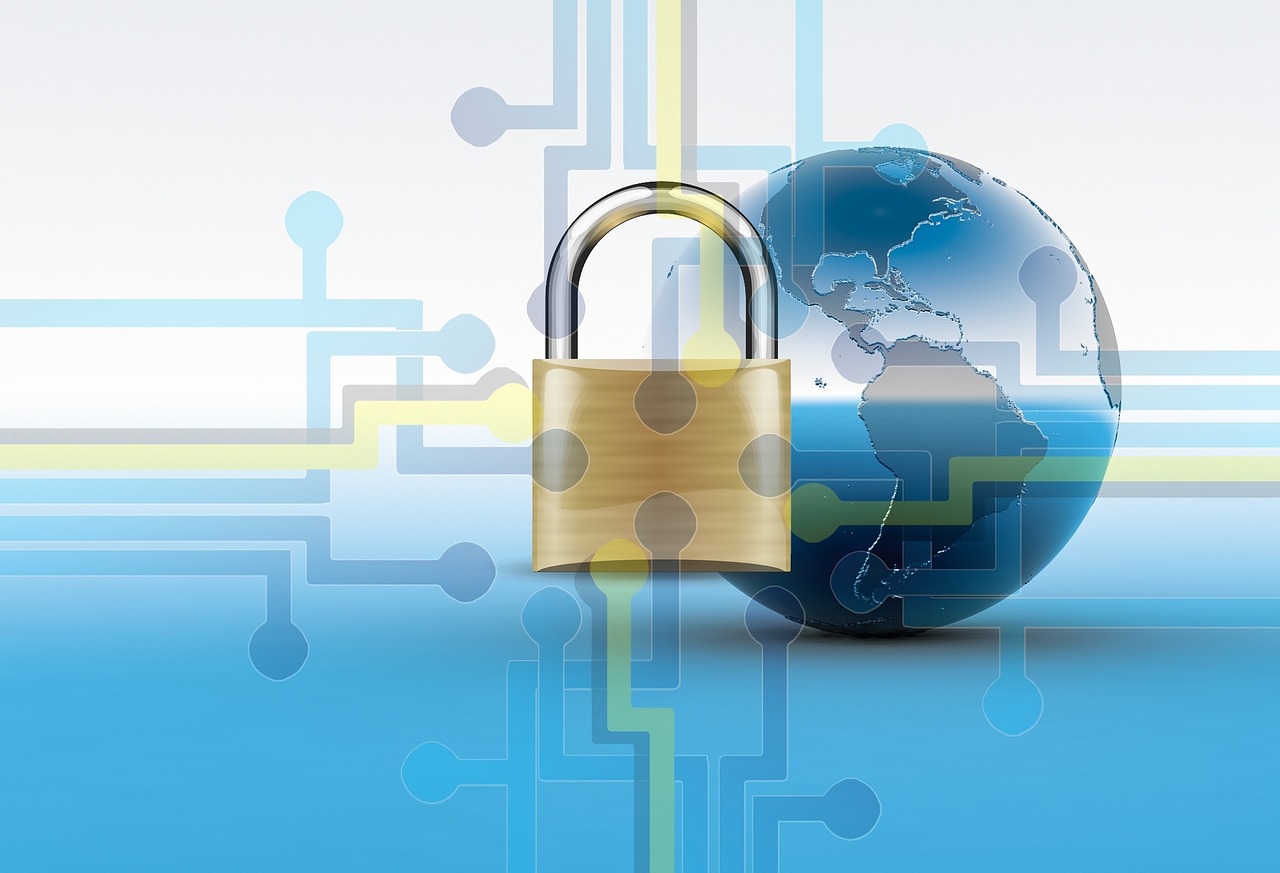
Using VPNs for Enhanced Security
In the ever-evolving landscape of online gaming, security is more important than ever. One of the most effective ways to enhance your safety while gaming is by using a Virtual Private Network (VPN). But what exactly is a VPN, and how can it protect you from potential threats? Think of a VPN as a secure tunnel for your internet connection, encrypting your data and masking your IP address. This means that your online activities remain private, and your personal information is shielded from prying eyes.
When you connect to a VPN, your internet traffic is routed through a server operated by the VPN provider. This not only adds a layer of encryption but also makes it appear as though you are accessing the internet from a different location. For gamers, this is particularly beneficial for several reasons:
- Privacy Protection: By masking your IP address, a VPN helps keep your personal information safe from hackers and other malicious entities who might try to exploit your gaming habits.
- Bypass Geo-Restrictions: Some games or content may be restricted based on your geographical location. A VPN allows you to access games and content that might otherwise be unavailable in your region.
- Reduced Lag and Improved Speeds: In some cases, using a VPN can actually improve your connection speed and reduce lag by optimizing your route to the game server.
However, not all VPNs are created equal. When choosing a VPN for gaming, you should consider several factors:
| Feature | Importance | Examples |
|---|---|---|
| Speed | Critical for online gaming to avoid lag. | ExpressVPN, NordVPN |
| Server Locations | More locations mean better chances of finding a fast server. | CyberGhost, Surfshark |
| Security Features | Look for strong encryption and no-log policies. | Private Internet Access, IPVanish |
| Compatibility | Ensure the VPN works with your gaming platform. | All major platforms |
To get started with a VPN, you’ll first need to choose a reputable provider and subscribe to their service. After that, you can download their application on your gaming device, whether it’s a PC, console, or mobile device. Once installed, simply connect to a server of your choice, and you’re ready to game securely!
In conclusion, using a VPN is a proactive measure every online gamer should consider. Not only does it enhance your security and privacy, but it also opens up new possibilities for gaming experiences. So, why take chances with your online safety when a simple step like using a VPN can make all the difference?
Q: Do I need a VPN for gaming?
A: While it's not mandatory, a VPN significantly enhances your privacy and security, making it a wise choice for online gamers.
Q: Will using a VPN slow down my connection?
A: Some VPNs may cause slight slowdowns, but many high-quality VPNs are designed to maintain fast speeds for gaming.
Q: Can I use a free VPN for gaming?
A: Free VPNs often come with limitations, such as slower speeds and data caps. It's usually better to invest in a reputable paid VPN for optimal performance.

Monitoring Game Settings and Permissions
This article explores the importance of cybersecurity in online gaming and provides essential tips and strategies to ensure a safe gaming experience for players of all levels.
This section delves into the various cyber threats that online gamers face, including phishing, malware, and account hacking, highlighting the need for awareness and proactive measures.
Strong passwords are crucial for protecting gaming accounts. This section outlines effective strategies for creating and managing secure passwords to safeguard personal information.
Implementing two-factor authentication adds an extra layer of security to gaming accounts. This subheading discusses its importance and how to enable it on various platforms.
Selecting the right authentication app can enhance security. This section reviews popular options and their features to help gamers choose the best fit for their needs.
Understanding backup codes and recovery options is vital for account security. This part explains how to utilize these features effectively to regain access if needed.
Phishing scams are prevalent in online gaming. This subheading provides tips on how to identify and avoid these malicious attempts to steal personal information.
This section covers essential safe online practices, including avoiding public Wi-Fi, being cautious with in-game purchases, and recognizing secure websites.
Virtual Private Networks (VPNs) can provide additional security during online gaming. This subheading discusses the benefits of using a VPN and how to choose the right one.
In the world of online gaming, where every click can lead to a new adventure or a potential risk, is not just a good idea—it’s essential! Many gamers dive into their favorite titles without fully understanding what they’re agreeing to when they click “accept” on those lengthy terms of service. This oversight can lead to sharing more personal information than intended, making it crucial to regularly check the settings.
Most games offer a range of settings that control what information you share with others, including your location, friend list, and even your gameplay data. For instance, you might find options to limit who can see your online status or send you messages. By navigating to the settings menu, you can often adjust these permissions to enhance your privacy. Additionally, be on the lookout for any default settings that may expose your data unnecessarily; many games have these set to allow maximum sharing.
Moreover, it’s wise to familiarize yourself with the game’s privacy policy. This document outlines how your information is collected, used, and shared. If you notice any red flags or if the policy seems overly invasive, it might be time to reconsider your engagement with that game. Remember, just because a game is popular doesn't mean it's safe!
Another tip is to keep an eye on updates. Game developers often tweak settings and permissions with new updates, so staying informed about these changes can help you adjust your privacy settings accordingly. Regularly checking for updates not only keeps your game running smoothly but also ensures that your security settings are up to date.
In conclusion, being proactive about monitoring your game settings and permissions is a vital step in maintaining your cybersecurity while enjoying online gaming. Just like you wouldn’t leave your front door wide open when you leave the house, don’t leave your gaming accounts vulnerable by neglecting these important settings!
- What should I do if I think my account has been hacked?
If you suspect your account has been compromised, immediately change your password and enable two-factor authentication. Contact the game’s support team for further assistance. - Can I change my privacy settings after creating my account?
Yes, most games allow you to modify your privacy settings at any time. Check the settings menu to make adjustments. - Is using a VPN safe for gaming?
Yes, using a VPN can enhance your security by masking your IP address and encrypting your internet connection, but make sure to choose a reputable service.
Frequently Asked Questions
- What are the common cyber threats faced by online gamers?
Online gamers often encounter a variety of cyber threats such as phishing, where attackers try to trick you into revealing personal information; malware, which can infect your device and steal data; and account hacking, where unauthorized users gain access to your gaming accounts. Awareness of these threats is crucial for maintaining a safe gaming experience.
- How can I create a strong password for my gaming accounts?
To create a strong password, use a mix of upper and lowercase letters, numbers, and special characters. Aim for at least 12 characters and avoid using easily guessable information like birthdays or names. Consider using a password manager to help generate and store complex passwords securely.
- What is two-factor authentication and why is it important?
Two-factor authentication (2FA) is an extra layer of security that requires not only a password but also a second verification step, like a code sent to your phone. It significantly reduces the risk of unauthorized access, as even if someone gets your password, they won’t be able to log in without the second factor.
- How do I recognize phishing attempts in gaming?
Phishing attempts often come in the form of unsolicited messages that ask for personal information or direct you to fake websites. Look for poor spelling and grammar, generic greetings, and urgent requests for information. Always verify the source before clicking on any links or providing personal details.
- Are VPNs really necessary for online gaming?
Using a VPN can enhance your security by encrypting your internet connection, making it harder for hackers to intercept your data. It also allows you to access games that may be restricted in your region. However, make sure to choose a reliable VPN service that won’t slow down your gaming experience.
- What should I do if I suspect my account has been hacked?
If you suspect your gaming account has been compromised, immediately change your password and enable two-factor authentication if you haven’t already. Check your account settings for any unauthorized changes and contact the game’s support team for assistance in recovering your account.
- How can I ensure my privacy while gaming?
To maintain your privacy, regularly review your game settings and permissions. Be cautious about sharing personal information in-game, especially in public chat rooms. Always use a secure internet connection and avoid public Wi-Fi networks when gaming.







